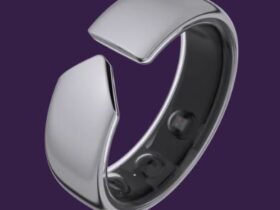How To Change Your Career And Become A Nurse?

Many of us may find ourselves at a point where we are questioning our career choices. Perhaps our current job is not satisfying us substantively or financially, or we are ready for a change. If this is how you feel, this is a pervasive feeling. It is a recurring problem for some people, and it is nothing to be ashamed of this thought. If you are searching for variety in your life, why don’t you consider working as a nurse? Nursing is a profession that offers stability, an employer, and serious rewards.
There are many obvious benefits to a career change to nursing. Still, you need to assess whether nursing is the right career for you. There are a few things you have to understand before you make the switch to nursing.
Each career requires different amounts of time, effort, and resources. If you don’t have a four-year degree in another field, the LVN or ADN program is an excellent place to start. However, if you want to change careers, a bachelor in nursing science (MSN) is a good start, and here is how:
What is the MSN program?
The Master of Science in Nursing (MSN) degree is an advanced degree for nurses with a master’s degree. Use MSN degrees to apply for certain nursing and management positions. With an MSN degree, you can also become an Advanced Practice Registered Nurse (APRN) and work as a nurse, specialist nurse, nurse anesthetist, or midwife. There are many different healthcare areas in which you can spend much time as an experienced nurse.
Why choose nursing as a second career?
If you’ve decided to become a nurse, you’ll probably work as a nurse for the rest of your life. Nurses have more equitable employment opportunities than any other profession. As per the Bureau of Labor Statistics, the number of nurses is likely to increase by 14% between 2019-2028. Nurses also have a fixed salary; in 2018, the average annual salary for nurses was $72,740, and 12% of nurses earned more than $107,640. For example, the average occupational growth rate for all occupations is 6%, and the average annual salary is $39,740.
What skills do nurses need?
To be called a registered nurse, you need to uphold the Nursing and Midwifery Council’s register. The title ‘registered nurse’ is guaranteed by law. Anyone who calls themselves a registered nurse and is not registered is committing an offense. Today, most nurses have a bachelor’s degree and a master’s degree in their relevant field. And suppose you have a master’s in nursing. In that case, you still have to go from msn to np programs in your first year of training to become ward managers or clinical specialists usually. This program requires at least three years of university study. Healthcare students enrolled at university are expected to undertake lengthy studies and keep up to date with new practice developments and qualifications throughout their working life. That is called Continuing Professional Development (CPD) and is mandatory to ensure continuity.
How to change?
To become a nurse, you need either a bachelor’s degree in nursing (ADN), a bachelor’s degree in nursing (BSN), or a master’s degree in nursing (MSN).
-
You can apply to study nursing not only by doing the usual A-level or Scottish Higher courses but also by enrolling in a BTEC or BTEC course at a nearby higher education institution.
-
You must have 5 GCSEs, including maths and English, at the A-C level.
-
Once you have met the entry requirements, you will need to apply to study nursing at your chosen university through the Universities and Colleges Admissions Service (UCAS).
-
It would help if you chose the area you want to specialize in: adults, teenagers, psychological well-being, or learning disabilities.
If you want to train as a midwife, this is an alternative type of training. However, nurses and midwives often do part of their training together.
What does a registered nurse do?
Nurses play an essential role in the clinical team. They help doctors treat a variety of conditions. They provide patient care, clinical care, teaching, and collaborate with other clinical team members. Nurses may have different roles and responsibilities depending on their level of training and qualifications. For example, nurses with an MSN degree may have access to managerial and professional positions, among many other benefits. The day-to-day duties of a nurse are:
-
Reviewing and maintaining medical records
-
Checking and maintaining patient records
-
Providing patients with information about illnesses and treatments
-
Assisting in the treatment and care of sick or patients with a sleep disorder or any other illness
-
Prescribing medicines and other supplies
-
Communicate with physicians and supervisors to help develop the best plan of care for the patient
Nurses often work shifts that fit into their work schedules.
-
Six days a week, 8 hours a day
-
Four days a week, 10 hours a day, or
-
Three days a week, 12 hours a day
Nurses who work five and seven days usually work about 40 hours a week, while nurses who work three and seven days may work 1.5 days a week.
How to gain experience?
You can start the program with no experience, but you’ll be doing clinical work once qualified. You will transfer to the nursing team. Gain work experience before applying to become a registered nurse. You won’t know if the job is right for you until you start practical nursing.
Nursing homes and the NHS regularly employ inexperienced staff who work as health care assistants. It is a perfect starting point for those training to be nurses. They develop the skills needed to think long-term and reduce confusion when assessing their situation.
Conclusion
Interest in qualified nurses is increasing, and the training needs are endless. Before you can decide if nursing is right for you, you need to know what a nurse does. With an MSN degree, you don’t have to worry about low pay or an untrained approach to the profession; applying for a BSN degree may be faster and less overwhelming. However, a MEPN may offer more meaningful job opportunities and higher remuneration.










Leave a Reply